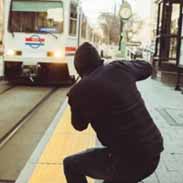AP World History Vocab #1 – Flashcards
Unlock all answers in this set
Unlock answersquestion
Paleolithic Age
answer
ending in 12,000 BCE; use of crude stone tools and hunting and gathering for subsistence
question
Homo sapien sapiens
answer
the human species that as most successful at the end of the Paleolithic period
question
Neolithic Age
answer
8,000 BCE-5,000 BCE; adaptation of sedentary agriculture; domestication of animals & plants
question
Neolithic Revolution
answer
succession of technological innovations and changes in human organization that led to development of agriculture; 8,500 BCE-3,500 BCE
question
hunting and gathering
answer
human means of obtaining subsistence before sedentary agriculture; band social organization
question
Bronze Age
answer
from 4,000 BCE, when bronze tools came into existence, to 1,500 BCE, when iron tools replaced them
question
slash-and-burn agriculture
answer
system of cultivation where forest floors are cleared by fire and then farmed on
question
bands
answer
levels of social organization of 20-30 people; nomadic hunters & gatherers; work distributed based on gender
question
Çatal Hüyük
answer
early urban culture based on sedentary agriculture
question
cuneiform
answer
form of writing developed by Sumerians using a stylus and tablets
question
nomads
answer
cattle and sheep herding societies found on the fringes of civilized societies
question
Mesopotamia
answer
"between the rivers"; civilizations that arose between the Tigris-Euphrates river valleys
question
Sumerians
answer
people who migrated to Mesopotamia c. 4,000 BCE; created first society in the region
question
Ziggurats
answer
massive towers associated with Mesopotamian temple complexes
question
city-states
answer
form of political organization typical of Mesopotamian civilizations
question
Babylonians
answer
unified of all Mesopotamia c.1,800 BCE; collapsed due to foreign invasion c.1,600 BCE
question
Hammurabi
answer
most important ruler of the Babylonian empire; responsible for codification of law
question
pharoah
answer
title of kings of ancient Egypt
question
pyramids
answer
monumental architecture typical of Old Kingdom Egypt; used as tombs for pharoahs
question
Kush
answer
African state divided along Upper Nile c.1,000 BCE; conquered Egypt and ruled it for several centuries
question
Indus River
answer
river sources in Himalayas to mouth in Arabian Sea; location of Harappan civilization
question
Harappa
answer
major urban complex of Harappan civilization; along with Mohenjo-Daro
question
Mohenjo-Daro
answer
major urban complex of Harappan civilization
question
Huanghe River
answer
site of the development of sedentary agriculture
question
Dao
answer
philosophy associated with Lao-Tze
question
Zhou
answer
overthrew Shang Dynasty and established second Chinese dynasty
question
Qin
answer
221 BCE-207 BCE; arose after the decline of the Zhou Dynasty
question
Shi Huangdi
answer
founder of the brief Qin Dynasty in 221 BCE
question
Great Wall
answer
defensive monument to keep out invaders from the North; built during Qin Dynasty under Shi Huangdi
question
Han
answer
dynasty that succeeded the Qin in 202 BCE; ruled for 400 years
question
Silk Roads
answer
trading route connecting European, Chinese, and Indian civilizations; transmitted ideas and goods throughout
question
Alexander the Great
answer
successor of Philip II; attempted to combine Greek and Persian cultures
question
Himalayas
answer
mountain range marking northern border of India; site of Aryan settlements
question
monsoon
answer
seasonal winds crossing India and southeast Asia; brings rain during summers
question
Aryan
answer
Indo-European nomadic pastoralists who replaced Harappan civilizations; militarized society
question
Sanskrit
answer
sacred and classical Indian language
question
Vedas
answer
Aryan hymns written in sacred books in 6th century BCE
question
untouchables
answer
lowest caste in Indian society; performed tasks considered polluting
question
Indra
answer
chief deity of the Aryans
question
Chandragupta Maurya
answer
founder of Mauryan dynasty; developed first empire in India
question
Mauryan
answer
dynasty in India in 4th century BCE after invasion of Alexander the Great
question
Ashoka
answer
grandson of Chandragupta Maurya; converted Buddhism and helped to spread it throughout India
question
Dharma
answer
the caste position and career determined by a person's birth
question
Kushans
answer
dynasty that succeeded Mauryan; sponsored Buddhism
question
Guptas
answer
dynasty that succeeded Kushans in 3rd century CE
question
Kautilya
answer
political advisor to Chandragupta Maurya; believed in scientific application of warfare
question
gurus
answer
brahmans who were teachers for the princes of the imperial court of the guptas
question
Vishnu
answer
the brahman, later Hindu, god of sacrifice
question
Shiva
answer
the brahman, later Hindu, god of destruction and reproduction
question
reincarnation
answer
successive attachment of the soul to some animate form according to merits earned in previous lives
question
nirvana
answer
Buddhist state of enlightenment; state of tranquility
question
Buddha
answer
Siddhartha Guatama; creator of major Indian and Asian religion in 6th century BCE
question
stupas
answer
stone shrines built to house pieces of bone or hair or personal possessions said to be relics of the Buddha
question
scholar-gentry
answer
Chinese class created by marital linkage of the local land-holding aristocracy with the office-holding shi



